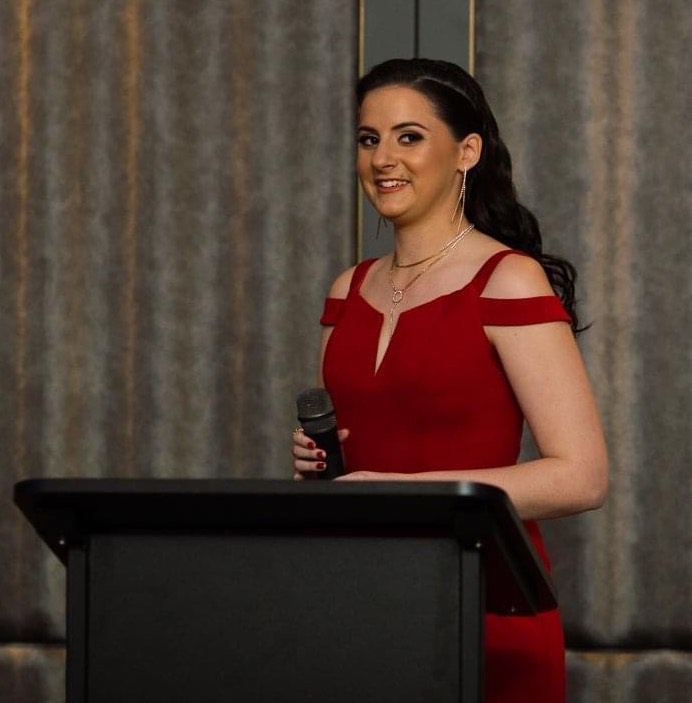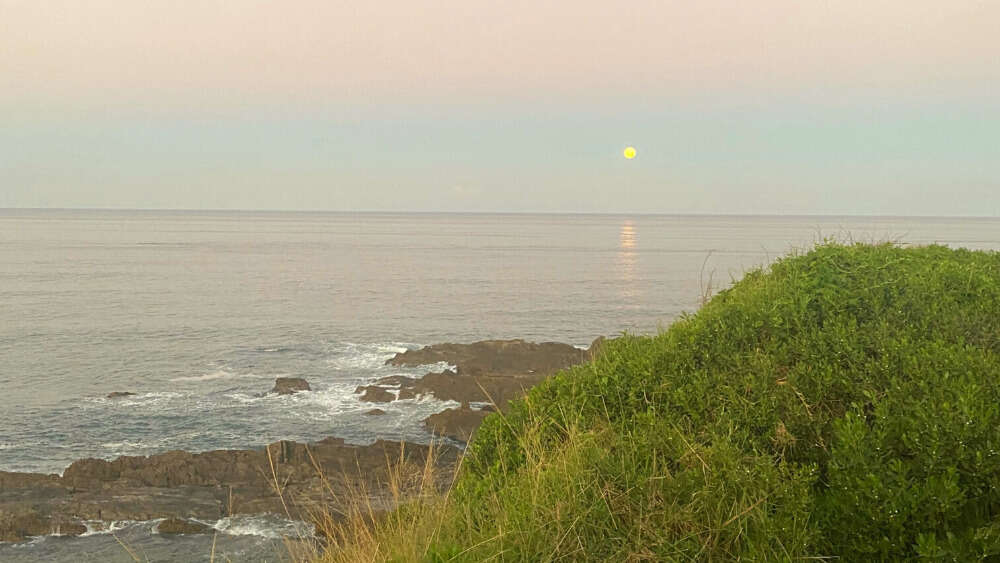'Christian leaders called for an Indigenous voice to parliament this week – it meant a lot to me'
A young Aboriginal woman shares her heart for Australia
Grace, a third-year law student at Macquarie University, shares her story and hopes as a young Indigenous woman.

Grace Slatyer is a third-year law student at Macquarie University, and an intern at the Radical Centre Reform Lab. Grace Slayter
OPINION
Family is a key pillar of my life, but as an individual finding my place in Australia, I haven’t always known my family history.
As a young person, I searched for parts of me that had been lost for many years. But when I was 24 years old, I discovered my family was part of the Stolen Generation. I found out I was Indigenous Australian, and that my family’s place was with the Juru people in Ayr Queensland.
That was a significant development for me: it was an opportunity to learn more about where I come from, to begin filling the void I have felt in my being for my whole life. My life has been a puzzle that even now I am still piecing together – a drawn-out and complex process.
The Stolen Generation involved the forcible removal of children from Indigenous families under policies of protection and assimilation. The ostensible aim was for Indigenous people to be included in Australian society and to achieve the same standard of living. Our colonial so-called ‘protectors’ thought they knew what was best for us, but the policies entailed severe discrimination, injustice, and hardship for Indigenous people. Families were broken apart – including mine. We are still recovering from the grief and loss.
If there had been a constitutionally guaranteed Indigenous body advising on Indigenous policy back then … perhaps the Stolen Generation could have been avoided, and I wouldn’t have felt so empty all these years.
This history is part of the reason Indigenous Australians are calling for a constitutionally guaranteed First Nations voice. We need a guaranteed say in the laws and in policies made about us, to help ensure better decision-making and fairer policies. To help ensure these past wrongs are not repeated.
If there had been a constitutionally guaranteed Indigenous body advising on Indigenous policy back then, perhaps discriminatory past policies could have been changed and improved. Perhaps the Stolen Generation could have been avoided, and I wouldn’t have felt so empty all these years. Things could have been different.
This week has given me hope. We have seen Australia’s religious leaders stand side-by-side in a joint resolution calling for action on the Uluru Statement from the Heart. This means a lot to me, especially because I am Christian.
Historically, there has been tension between Christianity and Indigenous Australians. The colonial perspective was very different to what it is now. Some Christian missions viewed Indigenous Australians as less than or had a low view of them as human beings. Others were more caring and saw value in Indigenous traditions. Some missionaries facilitated bibles being translated into Indigenous languages, which helped preserve our culture.
Things have changed in many churches, from being once controlling to now showing greater understanding. Despite the complex history, Christianity’s impact on Indigenous Australians – including me – has been decisive. Christianity has taught me core values like peace, love, kindness and forgiveness. It has also taught me the importance of equality.
Christianity has taught me core values like peace, love, kindness and forgiveness. It has also taught me the importance of equality.
The Bible states in Acts 17:25-28 that ‘God made all races and nations, all of us by one blood for his purposes.’ It explains that God made us all equally. We are all inherently interlinked, therefore we must support each other. We should unite as one nation, in support of each other, connecting to the land and people. This biblical perspective makes the support of Christian organisations that amplify the need for an Indigenous constitutional voice invaluable.
As my home, I know that Australia is a place of beauty, goodness, and potential. But I also see ways Australia needs to change. I believe the implementation of the Uluru Statement is crucial to Australia becoming an even better country than it is.
Indigenous constitutional recognition needs to be a practical part of this change. A First Nations constitutional voice will help stop the cycle of past failures in Indigenous affairs, ensure that we are heard, and improve policies. It will help us close the gap. It will also change even my own day-to-day life because I will go to church knowing that my fellow Christians and my fellow Australians walked side-by-side with me and supported this change.
So, thank you to those churches and religious organisations who are standing with Indigenous Australians to call for a constitutionally guaranteed Indigenous voice to parliament. I pray we will continue to fight for change together, and that we won’t stop until we see it happen. Then I will know that my home is finally united and committed to working together for a better future.
Grace Slatyer is a third-year law student at Macquarie University, and an intern at the Radical Centre Reform Lab.
Email This Story
Why not send this to a friend?


